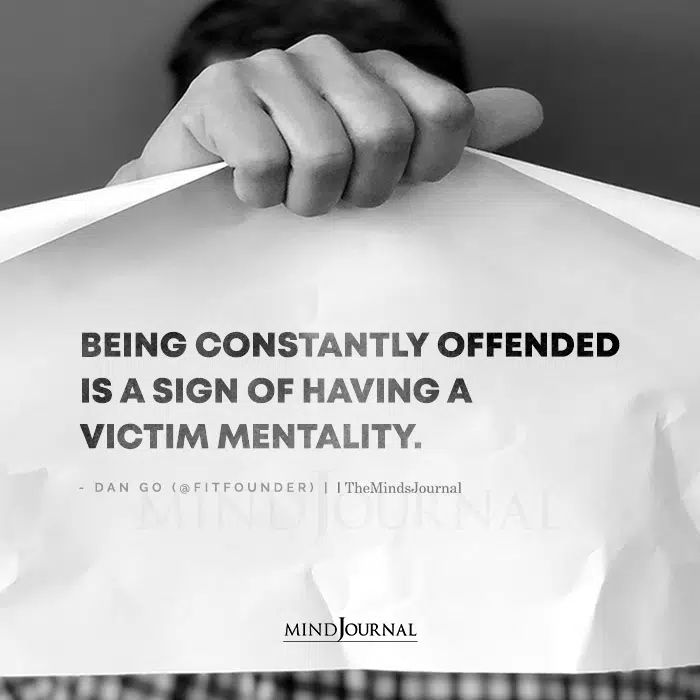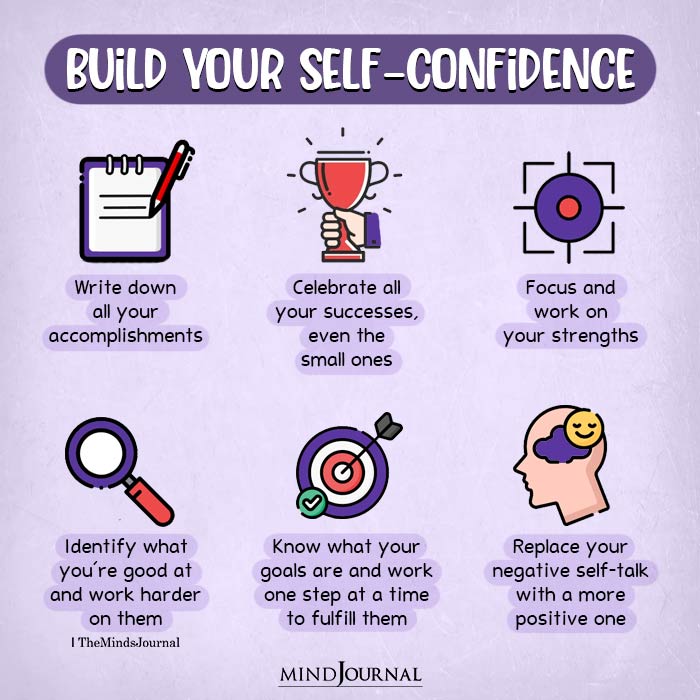Are you easily offended and find yourself in a huff over the smallest things? You’re not alone. When you get offended easily, it can be a real struggle, turning minor hiccups into major headaches. But hey, there’s a silver lining—understanding the reasons why you get easily offended & learning how to dial down the drama can make all the difference.
Maybe you don’t get offended easily. If so, kudos!
Or maybe…
- You already know you get offended easily (even if it’s just about one specific topic or issue), and it’s something you’re ready to address.
- You suspect you’re more sensitive than others and wonder whether there’s something you can do about it.
- You’ve never considered that your short fuse is a personal hiccup that might be holding you back in life and relationships…until now.
Whatever the case may be, I’ll argue that being the type of person who is easily offended creates a lot of unnecessary stress, conflict, and drama in life.
And if this resonates with you or someone you know, this article can help you understand where that quick-to-take-offense comes from and what can be done about it.
Related: 11 Typical Behaviors That Emotionally Hurt People Display Unknowingly
What Causes People To Get Offended Easily?
Just about all of us feel offended at times—whether that’s in response to something that someone did (or didn’t) do or say, or even in response to what we assume about someone’s words, intentions, or actions.
To be clear, I am in no way excusing intentionally hurtful behaviors—when other people treat you poorly, you have every right to express your feelings, set some boundaries, and, if necessary, distance yourself.
But when you’re constantly irked, irritated, offended, or upset by others (or even other “entities,” such as a political group), that’s a strong indication that you might benefit from changing your mindset, rather than demanding other people change—or even apologize, for that matter.

To help make sense of this, let’s look at some reasons why certain people take offense so often:
- They have unhealed emotional or psychological issues related to past experiences.
- They perceive that their honor, personal or ideological beliefs, or public image are being threatened.
- They are self-conscious about something that the “offender” brought up (whether real or perceived).
- Their emotional state in general is negatively impacted by excessive news and social media consumption, unhealthy lifestyle habits, undiagnosed and/or under-treated mental health conditions, etc.
- They simply have the mental habit of taking things too personally and may struggle to consider things from someone else’s point of view
To be frank, all of these reasons can really be summed up in one word: insecurity.
The person who is insecure will constantly see other people’s actions (or inactions) as a threat to their sense of self. When someone doesn’t do or say what we want or expect them to do, this can be very uncomfortable and unnerving for those of us who are insecure.
Related: 15 Warning Signs You Are Dating An Insecure Man
Insecurity causes us to rely almost exclusively on external things and conditions to help us feel safer in the world—and since the external isn’t within our control, we are often left reeling, reactive, and defensive.
Conversely, the secure person is willing and able not to take things so personally all the time—perhaps even in situations when another person was trying to offend them intentionally. How?
Because the secure individual understands that what other people do and say ultimately has nothing to do with them.
Individuals who are secure in themselves are less likely to perceive other people’s words or behaviors as personal attacks, and more likely to understand that what other people do and say is simply a result of their own personal experiences, assumptions, knowledge, and beliefs.
Emotional security grants us a rich internal bedrock of self-respect, appreciation, and love that we can use to stand strong even in the face of adversity.
“No one can make you feel inferior without your consent.” – Eleanor Roosevelt
What You Can Do To Stop Feeling So Offended All The Time?
If you’re tired of feeling “triggered” so easily and are ready to drop the habit, here are some things that might help:
1. Invest in things that build your self-esteem
Research, such as this 2018 paper published in the Journal of Theoretical and Philosophical Psychology, suggests that having high self-esteem acts like a buffer that can prevent you from feeling offended so easily.
Things that help strengthen self-esteem: leaning on your supportive network of loved ones, doing challenging things, documenting your accomplishments in a journal, and treating and speaking to yourself like someone worth taking care of (hint: you are!).

2. Practice the “pause”
Take a few moments to pause and breathe when you feel yourself becoming triggered. This is an effective strategy to bring more awareness to the habit of taking offense.
I also encourage people to use this moment of pause to notice what they are feeling in their bodies—maybe tension in the chest or heat in the face. By focusing on these physical sensations, we can override our knee-jerk emotional reactions and become more present and intentional.
The extra good news: you don’t have to be perfect. Pausing for moments of mindfulness takes practice, and even noticing that you didn’t pause at the moment is a step in the right direction.
Related: 50 Questions To Ask Yourself To Know Your Deepest Insecurities
3. Team up with a therapist
As I said, learning how to develop tools and strategies like the “pause” takes practice—and to this end, getting professional help may be much more productive and efficient in the long run.
Through talk therapy and related interventions, a licensed mental health counselor can help you hone these skills, clarify and heal from past traumas, become more aware of your assumptions and habits of mind, and deepen your understanding of yourself and your relationships.
Consider reaching out to a pro if you’re serious about evolving this aspect of your character.
Want to read more such empowering pieces? Check out April Eldemire’s blog here.
Written By April Eldemire
Originally Appeared On Couples Thrive









Leave a Reply
You must be logged in to post a comment.